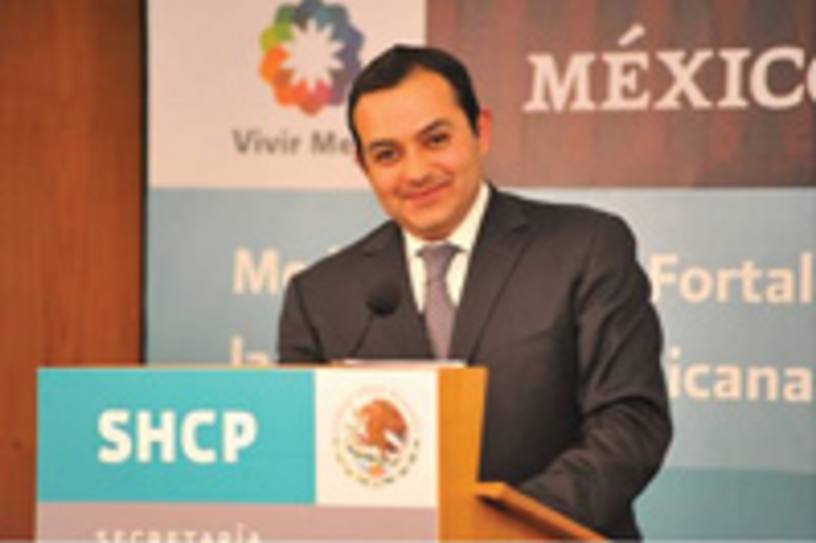Q: When you became finance minister in January 2010, Mexico was pulling out of one of its worst ever recessions and beginning an economic recovery. Is the recovery solid now and what are your forecasts for growth?
A: The economic recovery gained pace in 2010 and is now very solid. The main engine was exports. By February 2010, auto production was growing at 76%. Then, month by month, the domestic economy also started to improve. And by the end of 2010, growth was balanced between exports and internal demand. Exports were increasing 20% in value terms, retail sales were growing, bank credit grew about 10% and 730,000 jobs were created – the highest level in 16 years. Our estimate for economic growth in 2010 is more than 5%. Our unofficial forecast for 2011 is 4.1%.
Q: Eighty percent of Mexico’s exports go to the US. This made Mexico vulnerable in the recent crisis. So is the government considering policies to stimulate internal growth?
A: We have been designing such policies for some time, all focused on infrastructure. The average investment in infrastructure from 2007 to 2010 was 4.6% of gross domestic product [GDP]. Before that, Mexico was investing no more than 3%. This is a big change that has several implications. It creates a lot of jobs, it creates markets and regional development, and Mexico is also becoming an important export logistics hub. We have a good geographical location, but in the past we could not take advantage of this because it was not possible to move products from the Pacific to our border with the US. That is now feasible and cheap because we have built new highways and are investing in the expansion of our ports.
Q: Will Mexico’s nascent recovery be hit by inflation, caused by higher international prices for food and raw materials?
A: Inflation in 2010 ended up at 4.4%, which was within the central bank’s target for the year. This year the target is 3%, plus or minus 1%, which I think we are going to achieve. I am not neglecting this matter, but so far there is no evidence of huge increases in food prices in Mexico.
Q: What is the government doing to help increase bank credit to the private sector, given its importance for economic growth?
A: Total private sector credit [whcih includes credit from both banks and other financial instututions] to the private sector is now about 20% of GDP. In Colombia it is 40%. In Brazil it is 50%. In Chile it is 80%. We have a long way to go. We are thinking of new initiatives, not only to increase credit to Mexico’s small and medium-sized companies, the country’s main employers, but also to make it easier for banks to fund their commercial loans. We are thinking about schemes such as covered bonds, which are used in some European countries. We have also proposed a new bankruptcy law to reduce uncertainty in the process of banks recovering credit when companies default. We are working on setting up specialised bankruptcy courts and developing our capital markets – anything that can increase financing of the private sector.
Q: Many think the Mexican economy could also grow if there were reforms to increase competitiveness in sectors from energy to retail and construction?
A: We are very close to approving a new law that will strengthen the anti-trust agency in Mexico, which is very important. It will strengthen the agency in terms of supervision and penalties, and should become law before May. There is also a growing consensus on labour reforms, basically to relax labour laws to allow more access to jobs for women and young Mexican jobseekers.












